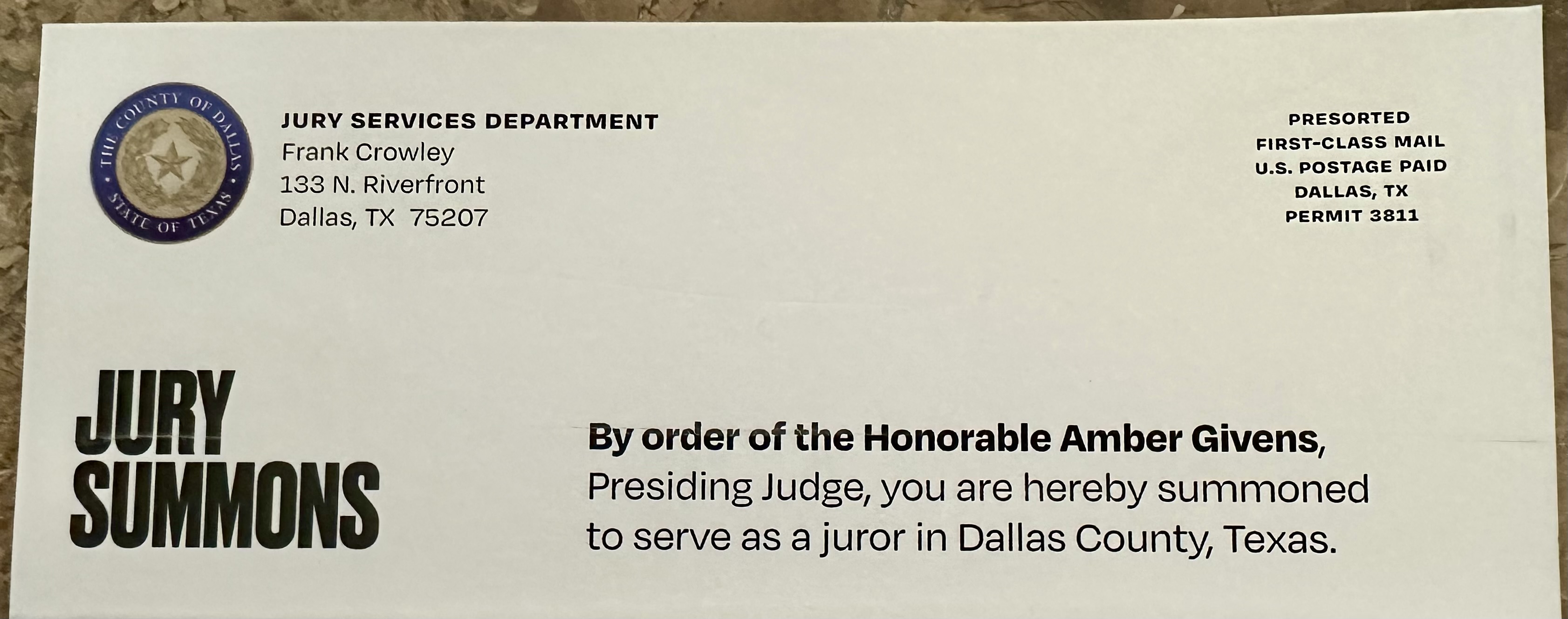While serving on a jury is a civic responsibility, there are legal ways to get out of jury duty in Texas if your circumstances qualify — and strategies that can reduce your chances of being picked.
Key Takeaways
- Texas allows lawful exemptions, including age 75+, primary caregivers, full-time students, active-duty military outside the county, certain officials, and recent jurors.
- Valid excuses include medical or financial hardship and non-residency, with documentation such as doctor notes, pay stubs, or proof of address.
- During voir dire, honest answers that show bias, hardship, or conflicts can lead to dismissal, but never lie to the court.
- Ignoring a summons risks fines of $100 to $1,000, contempt of court, and possible warrants for repeat no-shows.
- To request an exemption or delay, follow the instructions on the summons, submit online or in writing, and bring proof if you must appear.
Jury duty helps keep our justice system fair, but let’s be real — most of us think of it as a hassle. It can throw off your schedule, cause stress, and sometimes feel downright impossible to juggle.
But before you don a prison jumpsuit costume or fake suffering from post-traumatic stress disorder, there are some points to consider. Below, we’ll break down how jury duty works, common exemptions and excuses, and practical tips for avoiding selection without breaking the law.
Jury Duty Eligibility and Summons
Jury duty summonses come from voter registration and driver’s license records. If you receive a summons, you are legally required to respond, typically within approximately 10 days of receiving notification to appear. Failing to appear on your scheduled jury duty date can result in fines of $100 to $1,000 or contempt of court charges.
Legal Jury Duty Exemptions in Texas
The easiest way to get out of jury duty is to qualify for a lawful exemption. Under Texas law, you may be excused if you are:
- 75 or older
- A primary caregiver for a child under 12 or a dependent who cannot care for themselves
- A full-time student (high school or college)
- Active-duty military serving away from your home county
- An elected official or certain government employees
- Recently served on a jury (within 2–3 years, depending on county size)
If you fall into one of these categories, follow the instructions on your summons — usually online or in writing — to request an exemption.
Valid Jury Duty Excuses with Proof
Even if you don’t meet the exemption list, you may still qualify for dismissal with proof of:
- Medical hardship (doctor’s note for chronic health conditions or treatment schedules)
- Financial hardship (pay stubs or employer’s statement showing serious loss of income)
- Non-residency (if you’ve moved out of the county that summoned you)

What to Bring for Jury Duty
- Your summons
- ID
- Documentation of travel plans or paperwork to back up any excuse (appointment confirmations, etc.)
- Any required forms
You also must wear "proper attire." You may be sent home and ordered to return another day if you arrive wearing tank tops, hats, shorts, flip-flops, or sandals.
Juror Fees and Pay
Jurors in Texas receive $20 for the first day of jury duty service and $58 for each subsequent day. However, employers are not required to pay you during your jury duty service, and some employers who do pay you during this time will subtract your juror pay from your wages.
Certain counties provide free access to public transit on the date listed on your jury summons, or you may have to pay parking fees if you choose to drive. Additionally, if you're there the entire first day, you'll have to pay out of pocket for any meals.
How Selection Works
If you must appear, you’ll go through jury selection (voir dire). While you must answer truthfully, your responses can affect whether you’re chosen.
- Show potential bias: You'll be dismissed if lawyers believe you can’t be fair or that you have preconceived notions.
- Express disinterest: If you appear disinterested, attorneys may fear you won’t be attentive.
- Show excessive interest: If you ask too many questions, attorneys may suspect you’ve drawn conclusions.
- Imply distrust of police: You’ll likely be dismissed in criminal cases.
- Question the legal system: Skepticism implies you may not follow instructions.
- Detail upcoming travel plans: Present proof of any unavoidable conflicts.
Always be honest. Misleading the court or providing a false excuse could result in contempt charges, fines, or more severe consequences.
Penalties for No-Show
- Fines of $100 to $1,000
- Contempt of court charges
- Possible warrant for repeated no-shows
How to Request an Exemption or Delay
- Review your summons: Follow the online instructions for faster responses.
- Use the online portal: Some counties allow digital submission with your juror number or candidate ID.
- Appear in court if needed: Explain your situation to the judge directly.
- Provide supporting documentation: Attach a doctor’s note, employer letter, or proof of address.
- Mail your request: Send to the address listed on your summons if required.
Some counties let you reschedule your date. If you can choose, pick a Friday or the day before a holiday — trials rarely start on those days.
Frequently Asked Questions About Jury Duty
Who qualifies for a jury duty exemption in Texas?
Texans 75 or older, caregivers, students, active-duty military outside their county, elected officials, and recent jurors may claim exemptions.
What excuses can get me dismissed if I do not qualify for an exemption?
Courts may excuse you for financial or medical hardship, or if you’re no longer a resident. Proof is required.
What are the penalties if I ignore my summons?
Ignoring a jury summons can lead to fines of $100–$1,000 and possible contempt of court.
Do jurors get paid in Texas?
Yes. Jurors receive $20 for the first day and $58 for each subsequent day.
Is jury duty mandatory?
Yes. All U.S. citizens are legally obligated to appear when summoned.



